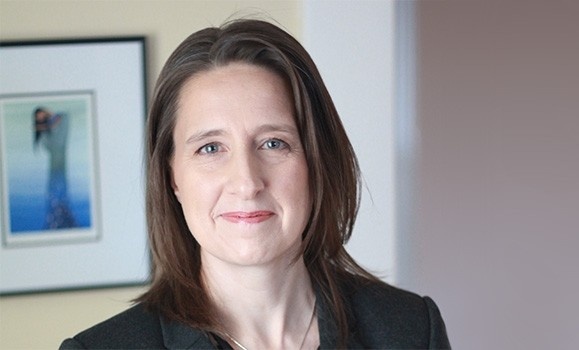Dalhousie University is officially launching the first ever international lab focused on restorative justice, with the support of the Donald R. Sobey Foundation.

Professor Jennifer Llewelyn, chair of the Restorative Research, Innovation & Education Lab (RRIELab). (File photo)
The Restorative Research, Innovation & Education Lab (RRIELab), located in the Schulich School of Law, will be led by a fully funded chair held by Professor Jennifer Llewelyn, a distinguished global leader in restorative justice. The lab's vision is to be a global centre of excellence that will accelerate the growth and development of a restorative approach to protect the health, safety and well-being of individuals and communities in Canada.
The initial focus of the RRIELab will be on accelerating the growth and development of restorative justice as a key component to transform the justice system in Canada, as well as supporting the development of restorative cities around the world and responding to institutional abuses and failures.
"On behalf of our entire Dalhousie community, I would like to thank the Donald R. Sobey Foundation for its generous support of the RRIELab, and to Professor Jennifer Llewellyn for her groundbreaking work in restorative justice," says Deep Saini, Dal president. "I am deeply appreciative of the work of the Donald R. Sobey Foundation and Professor Llewellyn, who is making a vital contribution here in Nova Scotia and internationally to ensure a restorative approach to protect the health and well-being of everyone in our community. This is especially true at this time as we reflect on and respond to the unjust racial tragedies experienced by Black people in North America and beyond."
A focus on individuals and communities
Restorative justice is a human-centred approach to justice that is focused on understanding and responding to impacts and needs of affected individuals and communities. This proactive and future focused approach brings people together to find meaningful and lasting justice solutions.
"The need for restorative justice is not new, indeed systemic and historical injustices mark the experience of marginalized and racialized communities around the world," says Prof. Llewellyn, who is also the Yogis and Keddy Chair in Human Rights Law at the Schulich School of Law.
"In this moment in our history, as we confront the pandemics of COVID-19 and anti-Black racism, we can see clearly that our current ways of doing things are not working. The urgency of a new and different way of imagining and doing justice doing right by each other cannot be allowed to pass by this time. We must support and sustain this new vision of justice to ensure it makes a difference throughout our systems, organizations and institutions. I am so proud and honored that we are embarking on this journey and pledge my commitment to create and support the connections and capacities leaders need in communities, governments and the private sector to work together to reimagine what justice requires and how to achieve it."
The RRIELab will build on Prof. Llewellyn's extensive work and advocacy for restorative justice. She has published extensively on both the theory and practice of restorative justice, been scholar in residence with the Nova Scotia Human Rights Commission and was director of the Nova Scotia Restorative Justice Community University Alliance: a collaborative research partnership between university and community partners focused on the institutionalization of restorative justice. She is currently director of the International Learning Community on a Restorative Approach, an international collaboration of researchers, policy makers and practitioners supporting jurisdictions committed to being restorative communities.
The power of partnership
Some of the ways the RRIELab will support justice transformation in communities, systems, institutions and organizations across Canada and beyond include:
- Strategic support for applying a Restorative Justice approach to diverse organizations
- Leading research in Restorative Justice to demonstrate tangible outcomes and impact
- Build capacity for growth and innovation in Restorative Justice
- Design education and training in Restorative Justice to build understanding
- Create a network of experts from around the world to collaborate and build knowledge
- Support collaboration across sectors in government, community and the research community
- Develop public education resources
Being home to the SMART JUSTICE NETWORK OF CANADA, which engages in non-partisan advocacy and knowledge mobilization for a smarter fairer justice system (smartjustice.ca)
Internationally, the RRIELab will lead the International Learning Community, a network of practitioners, policymakers and researchers supporting local communities and cities around the world committed to being "restorative communities."
"The establishment of the RRIELab will position Dalhousie and, indeed, Nova Scotia, to become a global centre of restorative approaches to justice," said Rob Sobey of the Donald R Sobey Foundation, which first entered into partnership with the RRIELab to fund its chair in restorative justice in 2017. "Our foundation is incredibly inspired by and proud of Professor Llewellyn's leadership. Advances in this field are needed now more than ever. This visionary work will now have a true home in Nova Scotia where it can be nurtured and grow to support international needs and focus areas."












